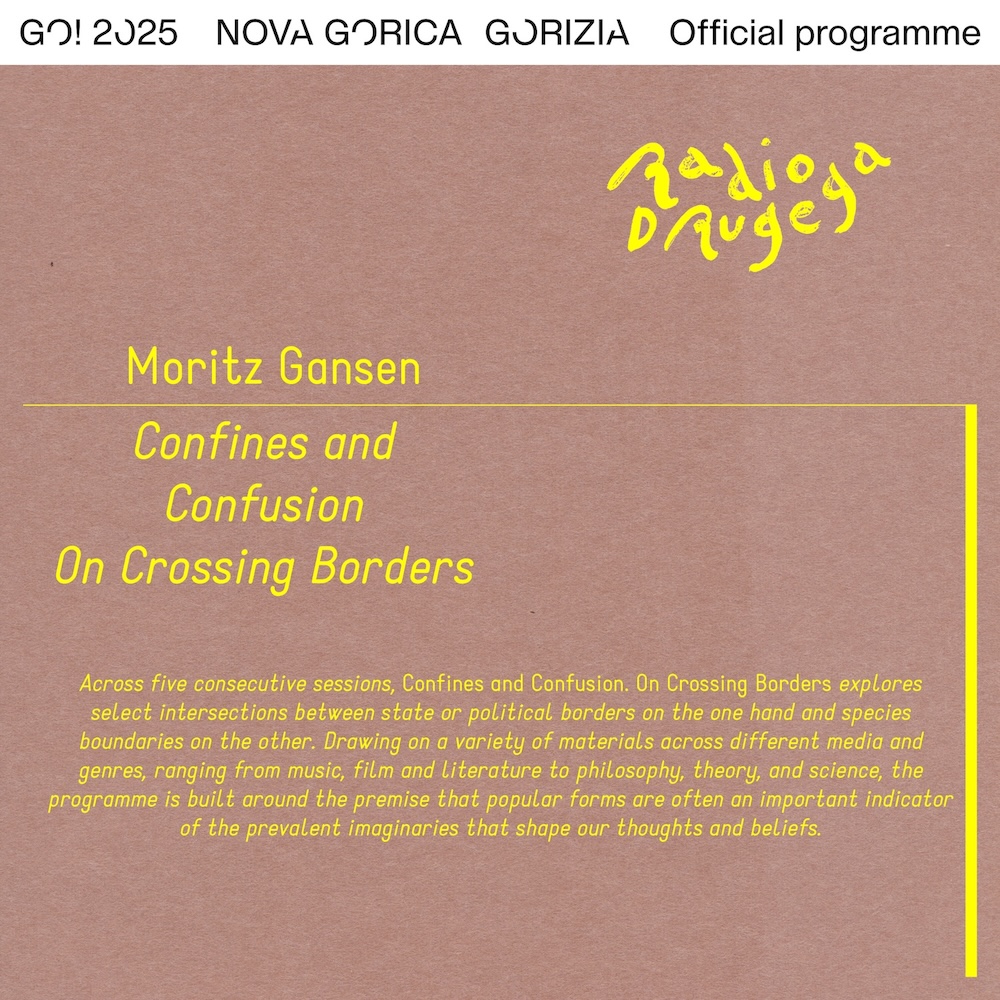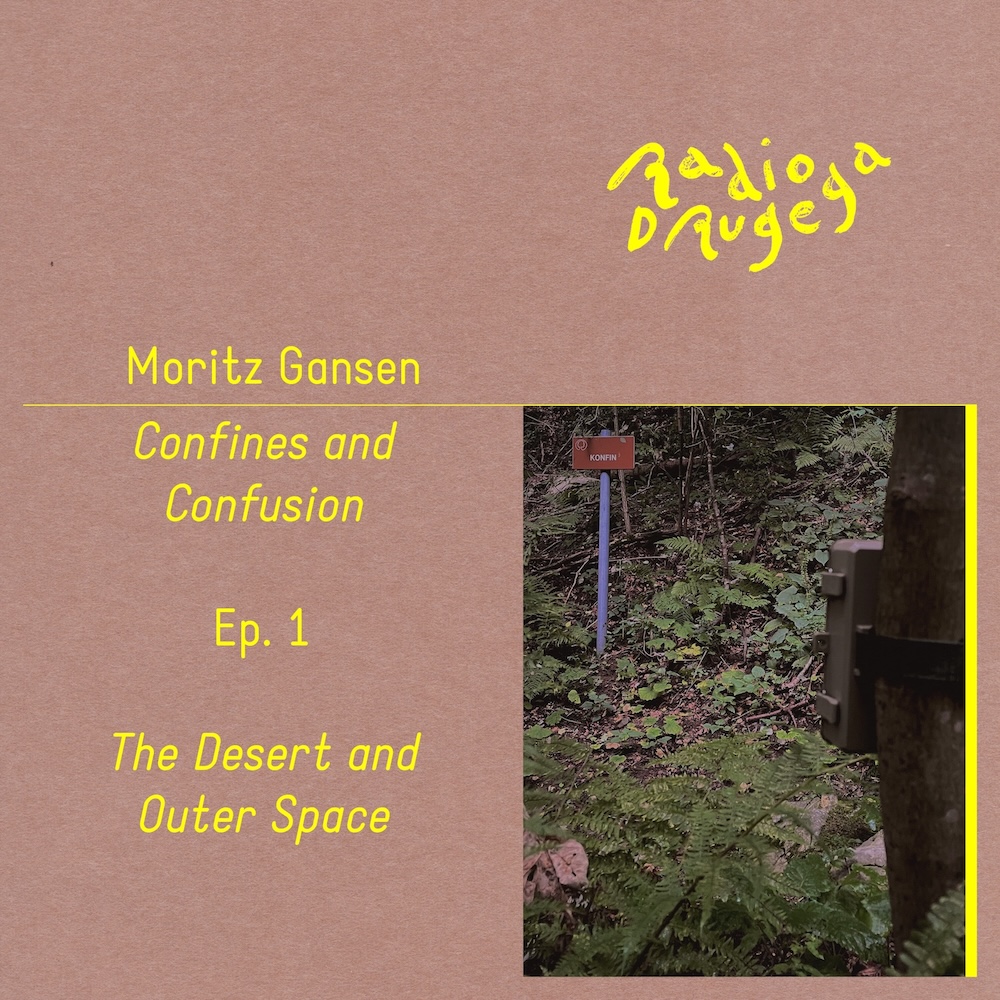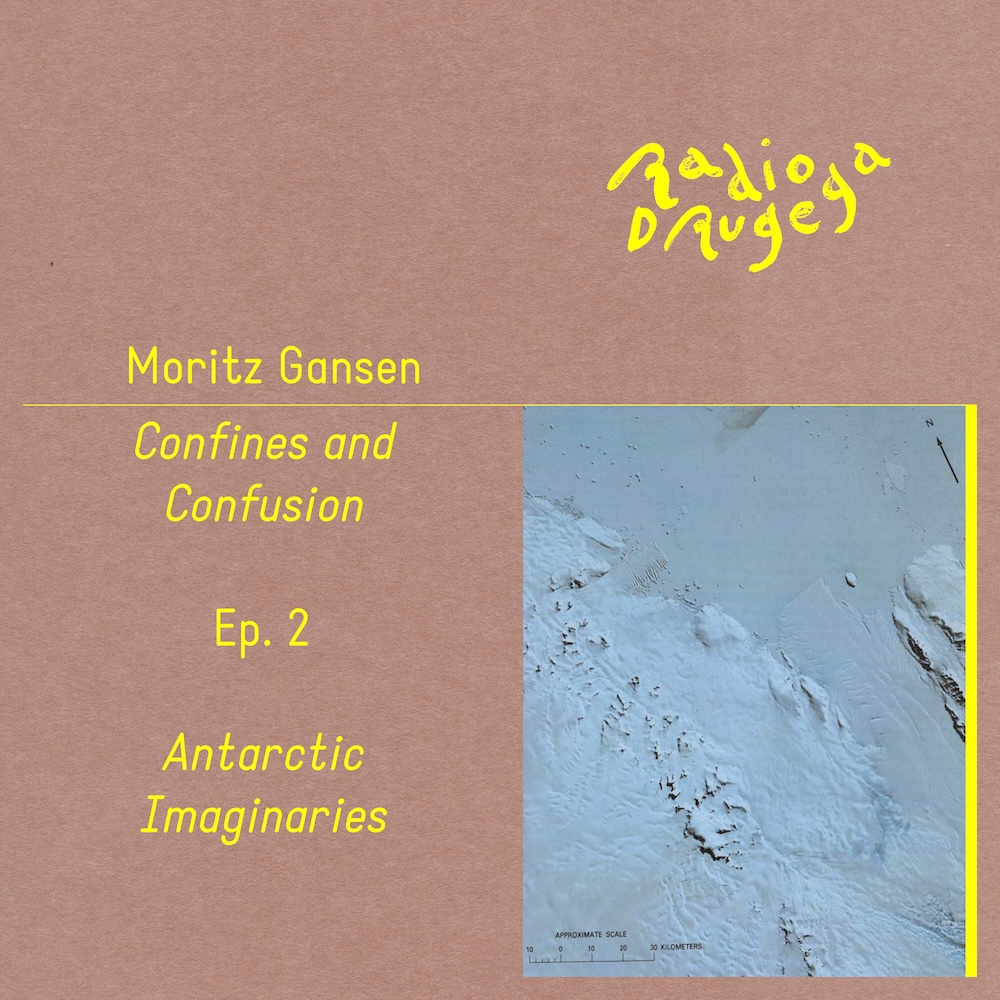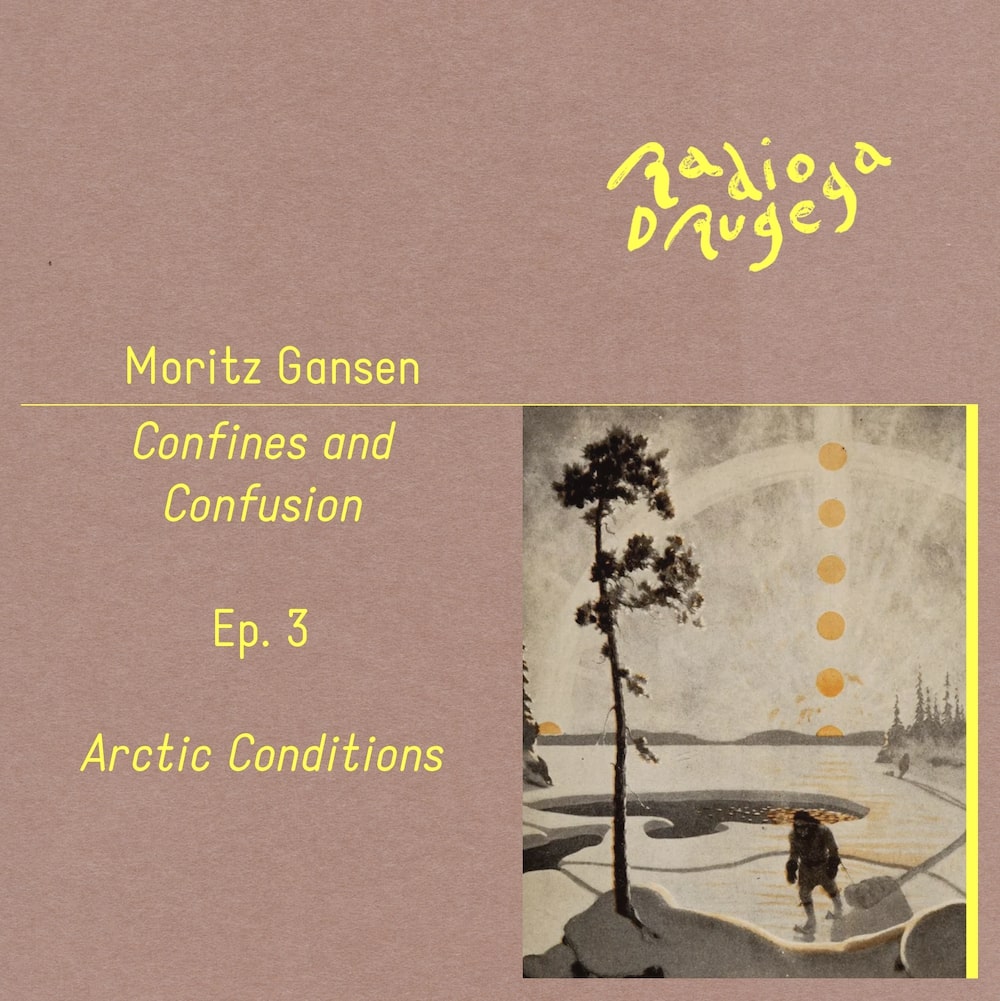Across five consecutive sessions, Confines and Confusion. On Crossing Borders explores select intersections between state or political borders on the one hand and species boundaries on the other. Drawing on a variety of materials across different media and genres, ranging from music, film and literature to philosophy, theory, and science, the programme is built around the premise that popular forms are often an important indicator of the prevalent imaginaries that shape our thoughts and beliefs.
The Other Radio/Radio Drugega program is financed by Javni zavod GO! 2025 - Evropska prestolnica kulture, Nova Gorica.
〰️
Skozi pet zaporednih srečanj bo oddaja Meje in zmeda. O prečkanju mej raziskovala izbrana presečišča med državnimi oziroma političnimi mejami na eni strani ter medvrstnimi mejami na drugi. Na podlagi raznolikih gradiv iz različnih medijev in žanrov – od glasbe, filma in literature do filozofije, teorije in znanosti – je program zasnovan na predpostavki, da so popularne forme pogosto pomemben pokazatelj prevladujočih imaginarijev, ki oblikujejo naše misli in prepričanja.
Program Radia Drugega/The Other Radio financira javni zavod GO! 2025 - Evropska prestolnica kulture, Nova Gorica.
〰️
Ep. 1 The Desert and Outer Space
Session 1 of Confines and Confusion, “The Desert and Outer Space”, uses negotiations of borderlands in Gloria Anzaldúa’s Borderlands / La Frontera. The New Mestiza and Barry Sonnenfeld’s Men in Black to explore a common trope in border thinking. As the equivocation of the “alien” in the opening scene of MIB shows, the “petty differences” (Independence Day) among former opponents no longer matter as soon as a new, extended borderline is drawn; if the incoming enemy is extraterrestrial, terrestrial humanity can finally overcome its internal conflicts and truly become one. Accordingly, the alien-invasion-that-unites-humanity (not unlike the global-catastrophe-that-unites-humanity) is predicated on a common logic of exclusion that overwrites inequalities of power and representation in order to to establish a hegemonic form of what it means to be human.
Filmography:
- Emmerich, Roland, Independence Day (1996)
- Sonnenfeld, Barry, Men in Black (1997)
- Villeneuve, Denis, Arrival (2016)
Bibliography:
- Anzaldúa, Gloria, Borderlands / La Frontera. The New Mestiza (1987/2012)
- Chiang, Ted, “Story of Your Life” (1998)
- Nevins, Joseph, Operation Gatekeeper. The Rise of the ‘Illegal Alien’ and the Remaking of the U.S.-Mexico Boundary (2001)
- Schmitt, Carl, The Concept of the Political (1932/1963)
- Selvelli, Giustina, Capire il confine (2024)
- Peter Szendy, Kant in the Land of Extraterrestrials (2011/2013)
Discography:
- Elfman, Danny, “Men in Black Main Theme” (1997)
- Los Tigres del Norte, “Somos Más Americanos” (2001)
- U.S. Customs and Border Protection Office of Public Affairs – Visual Communications Division, “La Bestia” (2014)
- Smith, Will, “Men in Black” (1997)
Ep. 2 Antarctic Imaginaries
Having been the site of heroic exploration and conquest for about a century and a half, Antarctica became, with the Antarctic Treaty of 1959, a (supposedly) depoliticised and borderless continent. All territorial claims were frozen and all military activity (including nuclear tests) was banned in order to establish a human commons of free and collaborative scientific investigation. And yet, Antarctica remains, as Joanne Yao puts it, a “borderscape”. Both in fiction and nonfiction, conflicts are often framed in terms of a human face-off with non-human others, foregrounding border conflicts of a different kind. Accordingly, this session of Confines and Confusion is devoted to an imaginary duality of Antarctica – as both the site of a utopian unification of humankind and a repository of potentially infinite frozen horrors.
Filmography:
- John Carpenter, The Thing (1982)
Bibliography:
- Antarctic Treaty (1959)
- Fabrice Argounès, “Antarctica: A ‘European Invention’” (2020)
- Richard Byrd, Alone (1938)
- John W. Campbell, “Who Goes There?” (1938)
- Howkins, Adrian, Frozen Empires. An Environmental History of the Antarctic Peninsula (2017)
- Kippis, Andrew, The Life of Captain James Cook (1788)
- Leahy, John Martin, “In Amundsen’s Tent” (1928)
- Lovecraft, Howard Phillips, At the Mountains of Madness (1936)
- McIntosh, Gregory, The Pin Reis Map of 1513 (2000)
- Protocol on Environmental Protection to the Antarctic Treaty (1991)
- Scott, Robert Falcon, Scott’s Last Expedition (1912/1914)
- Joanne Yao, “Borderscape Antarctica. The Uncanny Geographical Imaginaries of Terra Australis Incognita” (2024)
- Yarzábal, Luis Andrés, Lenys M. Buela Salazar, and Ramón Alberto Batista‑García, “Climate Change, Melting Cryosphere and Frozen Pathogens: Should We Worry…?” (2021)
Discography:
- Bal Sagoth, “In Search of the Lost Cities of Antarctica” (2001)
- Edward E. French,“Who Goes There?” (2020)
- Ennio Morricone, “Humanity, Pt. 1” (1982)
- Ludwig van Beethoven (New York Philharmonic; Arturo Toscanini), Symphony no. 5 in C minor, op. 67 (1808/1931)
- Sleep Research Facility, Deep Frieze, 79°S 83°W (2007)
- The Giddy Bastards, “Dishwashers vs Zombies” (2014)
- Thom Yorke, “Hands off the Antarctic” (2018)
Ep. 3 Arctic Conditions
Guest: Andreas Mentrup-Womelsdorf
Ep. 4 Of Trails and Territories
Ep. 5 A conversation with Moritz
In the fifth and final episode of Confines and Confusion, Vida and Aljaž speak with the author of the show, Moritz Gansen, reflecting on his work, methods, his staying in Topolò, the practice of the collective he is a part of - Diffrakt - and much more.






